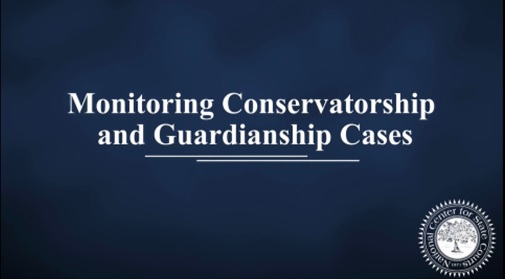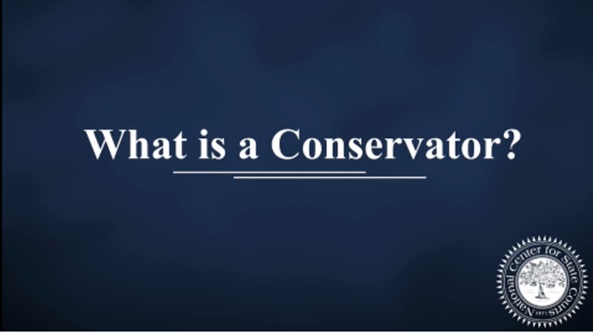The National Center for State Courts launched two video series to provide both probate court staff and new conservators with relevant information and tools for conservatorship cases.
Probate Court Staff Video Series
In this three-part video series, NCSC provides information and tools for probate court staff that wish to implement more rigorous conservatorship and guardianship monitoring. The series emphasizes important aspects of case management, report tracking, responses to potential fraud and abuse, and financial monitoring, including comparing assets, expenses and budgets over time and highlighting common problem areas to look out for. Intended for courts across the country and thus necessarily general in nature, the videos are particularly helpful to courts that currently lack local training resources.
New Conservator Video Series
In this short five-part video series, NCSC provides information and tools for those who are thinking about becoming a conservator or conservators who have already been appointed by a court. The series gives an overview of what conservatorships are, the conservator’s responsibilities and role in protecting assets, why courts monitor expenses, and which expenses are allowable. Intended for the public and courts across the country and thus necessarily general in nature, the videos are helpful as an additional training resource but do not replace specific requirements and guidelines set by the local court.
These video series were supported by Cooperative Agreement 2018-V3-GX-K023, awarded by the Office for Victims of Crime, Office of Justice Programs, U.S. Department of Justice. The opinions, findings, and conclusions or recommendations expressed in this video are those of the contributors and do not necessarily represent the official position or policies of the U.S. Department of Justice.
Guardianship Monitoring Protocol Course
The court’s duty to protect the well-being of an individual does not end when it appoints a guardian or conservator. After appointment, the court has an ongoing duty to monitor the guardianship or conservatorship, holding the guardian accountable for ensuring the person’s needs are being met. With a monitoring protocol, the court can identify guardians who are struggling, guide a guardian who needs assistance in fulfilling their duties, and the court can stop a guardian from using their court appointed authority to abuse, neglect, or exploit an individual. In this interactive series, court personnel will learn how to use the monitoring protocols, applying them to fictional case reports.
